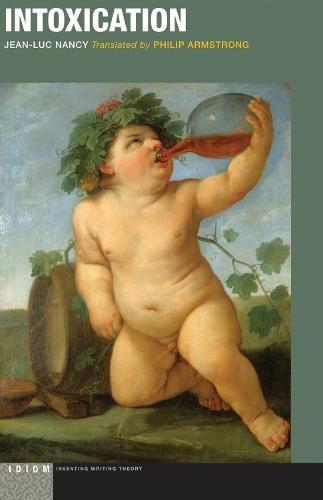Readings Newsletter
Become a Readings Member to make your shopping experience even easier.
Sign in or sign up for free!
You’re not far away from qualifying for FREE standard shipping within Australia
You’ve qualified for FREE standard shipping within Australia
The cart is loading…






From Plato’s Symposium to Hegel’s truth as a Bacchanalian revel, from the Bacchae of Euripedes to Nietzsche, philosophy holds a deeply ambivalent relation to the pleasures of intoxication. At the same time, from Baudelaire to Lowry, from Proust to Dostoyevsky, literature and poetry are also haunted by scenes of intoxication, as if philosophy and literature share a theme that announces and navigates their proximities and differences.
For Nancy, intoxication constitutes an excess that both fascinates and questions philosophy’s sober ambitions for appropriate forms of philosophical behavior and conceptual lucidity. At the same time, intoxication displaces a number of established dualities-reason and passion, mind and body, rationality and desire, rigor and excess, clarity and confusion, logic and eros.
Taking its point of departure from Baudelaire’s categorical imperative to understand modernity- be drunk always -Nancy’s little book is composed in fragments, quotations, drunken asides, and inebriated repetitions. His contemporary banquet addresses a range of related themes, including the role of alcohol and intoxication in rituals, myths, divine sacrifice, and religious symbolism, all those toasts to the sacred spirits involving libations and different forms of speech and enunciation-to the gods, to modernity, to the Absolute. Affecting both mind and body, Nancy’s subject becomes intoxicated: Ego sum, ego existo ebrius-I am, I exist-drunk.
$9.00 standard shipping within Australia
FREE standard shipping within Australia for orders over $100.00
Express & International shipping calculated at checkout
From Plato’s Symposium to Hegel’s truth as a Bacchanalian revel, from the Bacchae of Euripedes to Nietzsche, philosophy holds a deeply ambivalent relation to the pleasures of intoxication. At the same time, from Baudelaire to Lowry, from Proust to Dostoyevsky, literature and poetry are also haunted by scenes of intoxication, as if philosophy and literature share a theme that announces and navigates their proximities and differences.
For Nancy, intoxication constitutes an excess that both fascinates and questions philosophy’s sober ambitions for appropriate forms of philosophical behavior and conceptual lucidity. At the same time, intoxication displaces a number of established dualities-reason and passion, mind and body, rationality and desire, rigor and excess, clarity and confusion, logic and eros.
Taking its point of departure from Baudelaire’s categorical imperative to understand modernity- be drunk always -Nancy’s little book is composed in fragments, quotations, drunken asides, and inebriated repetitions. His contemporary banquet addresses a range of related themes, including the role of alcohol and intoxication in rituals, myths, divine sacrifice, and religious symbolism, all those toasts to the sacred spirits involving libations and different forms of speech and enunciation-to the gods, to modernity, to the Absolute. Affecting both mind and body, Nancy’s subject becomes intoxicated: Ego sum, ego existo ebrius-I am, I exist-drunk.